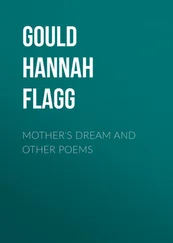“I’m sorry,” she said. “I hope that wasn’t your dinner.”
“No, no,” I lied, too tired to care whether I ever ate again.
Sarasi gestured me into the room and pointed to the bunk bed. “Take the bed you prefer,” she said. “The boys sleep with me. At least for now.” She lowered her voice. “We don’t know where their father is at the moment.” She looked at her short, rounded, pink fingernails. “People are so mean. They make the same mistake again and again.” I didn’t know whether she was talking about the boys’ father or herself for forgiving him, but before I could ask her, her older son was pulling on my hand, introducing himself, telling me about his mosquito net.
“This is a new one,” he said. “Best kind. You are so luck. There are many dengue fever mosquitoes. One of the boys in my class has died. I saw him before he has died. He looked like—” Tilak sucked in his cheeks and rolled his eyes to the back of his head. I grimaced. He grinned, gratified.
Sarasi’s younger son was curled on his side in the double bed, his cheek resting on the back of his hand. “My brother goes to sleep so early,” Tilak said as I hoisted myself into the upper bunk. “I like to be awake late in the night.” He warned me to fully close the gap in the mosquito net and scanned the room to make sure no one left out a glass of water. Dengue fever mosquitoes plant their babies in the old water. They are silent, so you have no warning before they bite. They’re so tiny you could kill them with one finger but still they get to you before you get to them and just like that — Tilak clapped his hands above his head — your whole body is filled with the disease and you turn purple and your blood freezes and you die.
Sarasi told Tilak to hush. She lay down next to her younger son in her jeans and T-shirt and blinked at the ceiling. Wish it was Sunday. After Tilak’s breath grew long and deep, she pulled the sheet over his balled-up body and returned her face to the ceiling. That’s my fun day. I tried to stay awake long enough to appreciate my cramped spine elongating against the hard mattress, ’80s pop mixing with the crickets outside, the interplay of accents coming from the courtyard, the odd comfort of sharing an unknown family’s home. But I’m only making up those details in retrospect. What I remember is that, just before I disappeared into dreamless sleep, I felt like nobody, far away from all the usual thoughts, both scared and safe.
—
I stayed at Rose Land for weeks, setting out on foot each morning to explore the temples and gardens, then coming home to eat rice and curry out of plastic bags I bought from the Muslim restaurant in town, which Sarasi told me was the cleanest. I took a trip to the seashore, as I giddily thought of the south coast, feeling like a sweet little girl in a children’s book. Bikini-clad Europeans posed for sexy photos alongside Sri Lankan families — husbands gaping as they splashed with toddlers in the shallows, women in saris holding babies in one hand and umbrellas in the other, to keep their skin from turning darker in the sun. I didn’t want to be reminded that I was just another white girl on vacation. So I headed back to Rose Land, where I could spend my evenings helping the boys with their English homework and letting Sarasi paint my nails. (“You have pretty hands,” she said. “You should maintain.”) The Italian couple had returned to India, so I took their room — two twin beds pushed together beneath a window lined with bars to keep the monkeys out, usually filled with flashes of orange robes swooshing around bare feet. There was a monastery uphill from Rose Land, and the top of the window met the very bottom of the courtyard. As I laid out my clothes on one of the beds, fully unpacking for the first time, the monks began chanting. “So beautiful,” I said when Mary passed my open door. She smiled indulgently. “The government pays them to live there,” she said. “Most easy job in Sri Lanka.”
Still, I lay on my bed every night at sunset, listening to the oceanic crooning of unknown words, watching the square of sky deepen to black. Only someone unlovable could love aloneness this much. I didn’t know whether this was a good thought or a bad thought, but I didn’t much care either way.
I never used the blank moleskin notebook I’d brought with me, intending to record scenes and conversations for some future self, scavenging for the vaguely imagined article I planned to write or desperate to recall past joys. So I don’t remember many specific moments or sensory details from that first trip, just that I was barreled down constantly by their combined force. The manic city streets, the koel birds crooning at dawn, the ancient stone Buddhas nestled at the base of heavy fig trees, the huge white beaches with huge green waves and huge pink sunsets and huge clouds slicing a huge sky. Sri Lanka did feel like freedom — from trying in general, if not from Jared specifically.
I met an Irish girl at Rose Land, who’d just come back from a silent meditation center in the mountains. “Most beautiful place in the world,” she said, and wrote down the name of the town for me, in the back of my empty notebook.
SHIRMANI
Gongs woke us before dawn; we dressed, peed, and brushed our teeth by candlelight; followed a trail of slowly moving flames to the Buddha hall; sat still for one hour; drank tea while watching the sunrise; stretched slowly for an hour; ate porridge with dates and roasted peanuts; sat still some more; stretched; ate rice and vegetables; sat; stretched; drank tea; watched the sunset; chanted; slept. This was every day at the silent meditation center in the mountains above Kandy.
Sometimes during the morning meditations, a man at the front of the Buddha hall spoke into the darkness about ordeenearness and realeetee. He had just returned from a trip to Germany; a couple invited him to stay at their house and teach their friends about meditation. When the couple went out one night, they thought their Buddhist teacher might be amused by watching television. He flipped through the channels for hours. “More than one hundred programs,” he said to the candlelit room of solitary sitters. “So many choices, all the time, night and day. This is dukkha. This is suffering.” He asked us to experience instead our ordinary human forms, to feel friendly toward our ordinary human lives. What I experienced for the first few days was a barrage of thoughts demanding that I scratch my lower back, extend my legs, stand up, get the hell out of Shirmani, take a lifelong vow of silence and stay at Shirmani forever, fall in love with my breath, buy myself a new dress, burn all my clothes, become a lesbian, notice my breath without subjecting it to conceptual thinking like love, use the working meditation period to hunt down and kill that squirrel that wouldn’t shut the fuck up, do something, anything, just make it better, make it better, make it better. I did not feel friendly toward this vain urgency.
“Please feel your heart,” the man in white said as our candle flames disappeared into pale early light. “Please feel your heart deeply.” I tried to scoff at his corny command, but the mere mention of that place brought my desperate attention there anyway and just like that my heart was feeling me, grasping at my throat from the inside, pulling taut the skin around my collarbones and neck. All those times I failed to contain my childish urges, drank too much and humiliated myself with some public display of rage or sorrow and so drank more; all the days in Paris I wasted with my misery; all the times I shrieked and punched and clutched at Jared instead of walking away; all the times I failed to take myself home. Impossible to contain the memories of the bad things I’d done, more terrible for their stupidity, for being average, repeatable badness, not even—
Читать дальше












